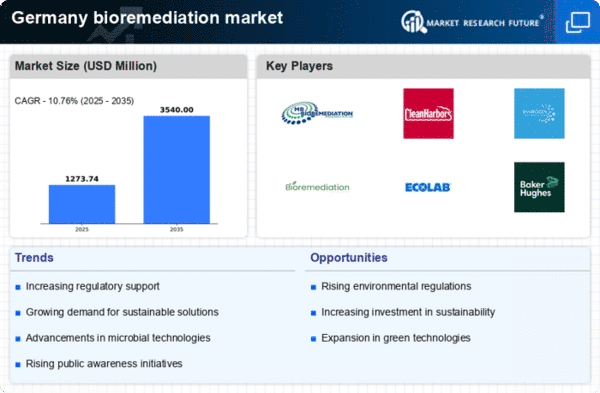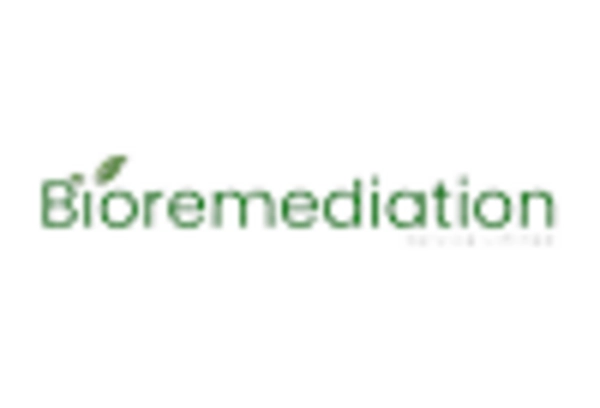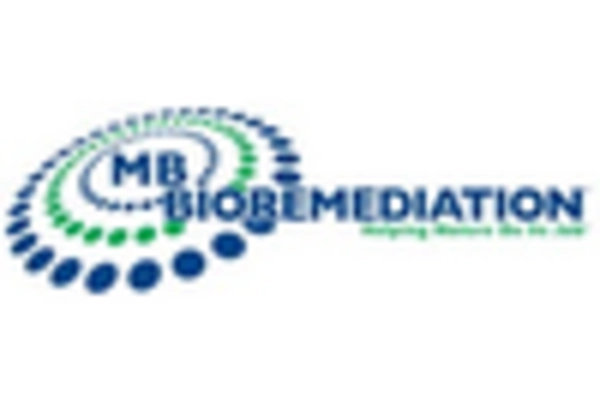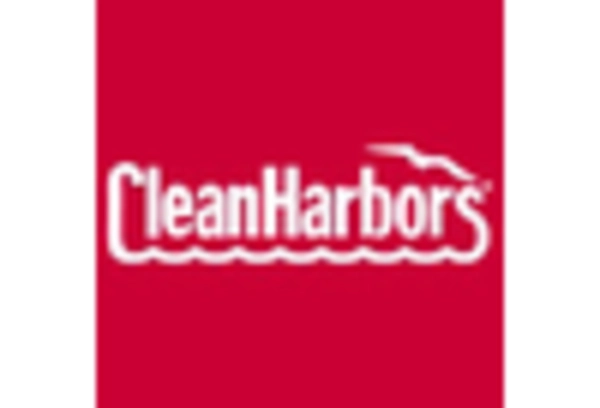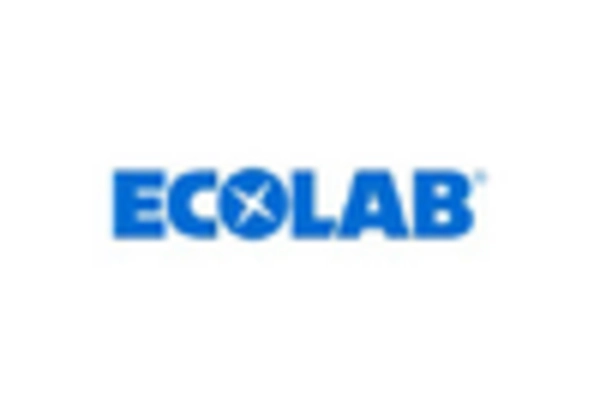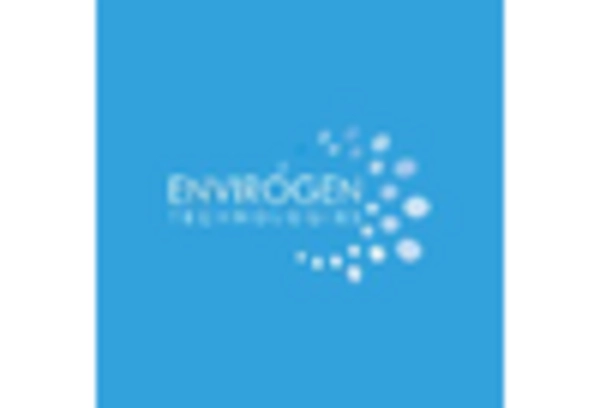Public-Private Partnerships
Public-private partnerships (PPPs) are emerging as a significant driver for the bioremediation market in Germany. These collaborations facilitate the sharing of resources, expertise, and funding between government entities and private companies. Such partnerships are instrumental in implementing large-scale bioremediation projects, particularly in urban areas with high contamination levels. In 2025, it is anticipated that PPPs will account for approximately 30% of the total investments in the bioremediation market. This collaborative approach not only accelerates project timelines but also enhances the overall effectiveness of remediation efforts, thereby contributing to environmental sustainability.
Research and Development Initiatives
Investment in research and development (R&D) is crucial for the advancement of bioremediation technologies in Germany. Academic institutions and private companies are collaborating to innovate and improve bioremediation methods, which is vital for addressing complex environmental challenges. The German government has allocated substantial funding for environmental research, with a focus on bioremediation solutions. In 2025, R&D spending in this sector is expected to reach €50 million, reflecting a growing commitment to developing effective bioremediation strategies. This emphasis on innovation is likely to enhance the bioremediation market's competitiveness and effectiveness in tackling pollution.
Industrial Waste Management Practices
Germany's robust industrial sector generates significant amounts of waste, necessitating effective waste management solutions. The bioremediation market is increasingly recognized for its potential to treat industrial effluents and contaminated sites. As industries face pressure to adopt sustainable practices, bioremediation offers a cost-effective and environmentally friendly alternative to traditional methods. In 2024, the market is projected to grow by 15%, driven by the need for industries to comply with waste management regulations. This trend indicates a shift towards integrating bioremediation technologies into standard operational procedures, thereby enhancing the industry's overall sustainability.
Environmental Legislation and Compliance
The stringent environmental regulations in Germany are a primary driver for the bioremediation market. The government has implemented various laws aimed at reducing pollution and promoting sustainable practices. For instance, the Federal Soil Protection Act mandates the remediation of contaminated sites, which has led to an increased demand for bioremediation technologies. In 2023, the market was valued at approximately €200 million, with expectations of growth as more companies seek compliance with these regulations. The bioremediation market is likely to benefit from ongoing legislative changes that encourage the adoption of eco-friendly remediation methods, thus fostering innovation and investment in this sector.
Growing Demand for Sustainable Solutions
The increasing public demand for sustainable environmental solutions is a key driver for the bioremediation market in Germany. As awareness of environmental issues rises, consumers and businesses alike are seeking eco-friendly alternatives to traditional remediation methods. This shift in consumer behavior is prompting companies to adopt bioremediation technologies, which are perceived as more sustainable and less harmful to ecosystems. In 2025, the market is projected to grow by 20% as businesses respond to this demand. The bioremediation market is thus positioned to capitalize on this trend, aligning its offerings with the values of environmentally conscious consumers.


